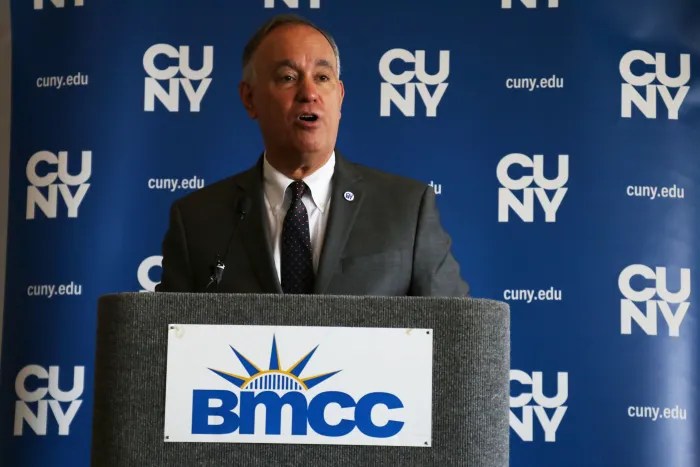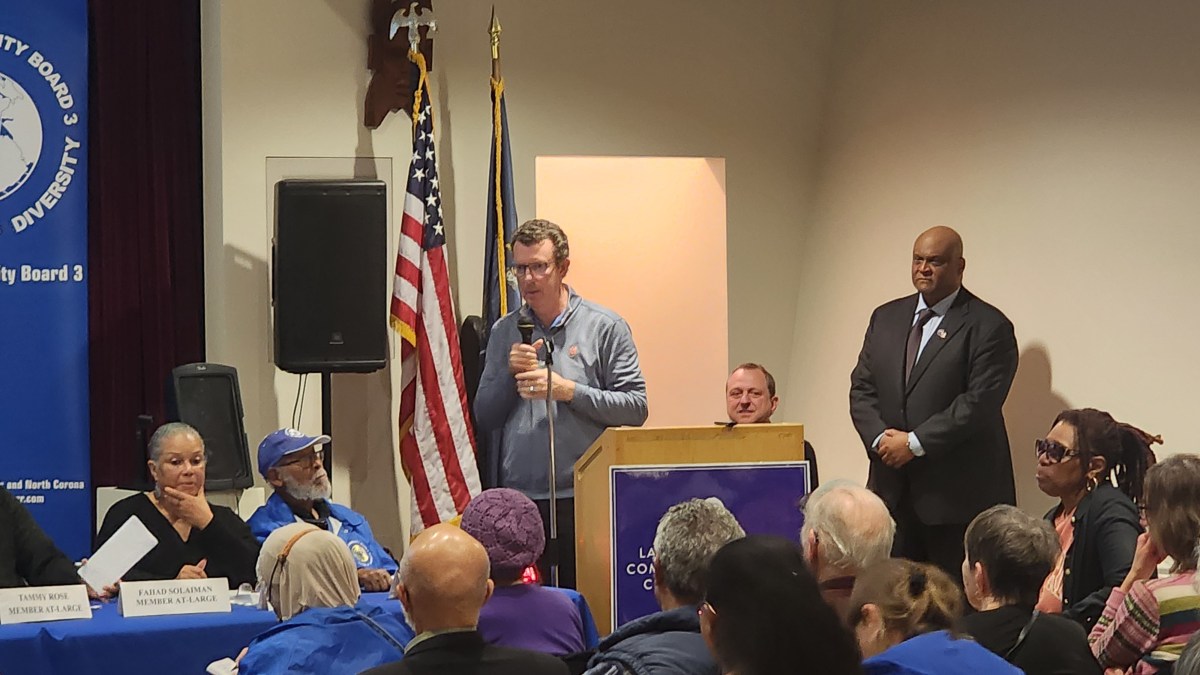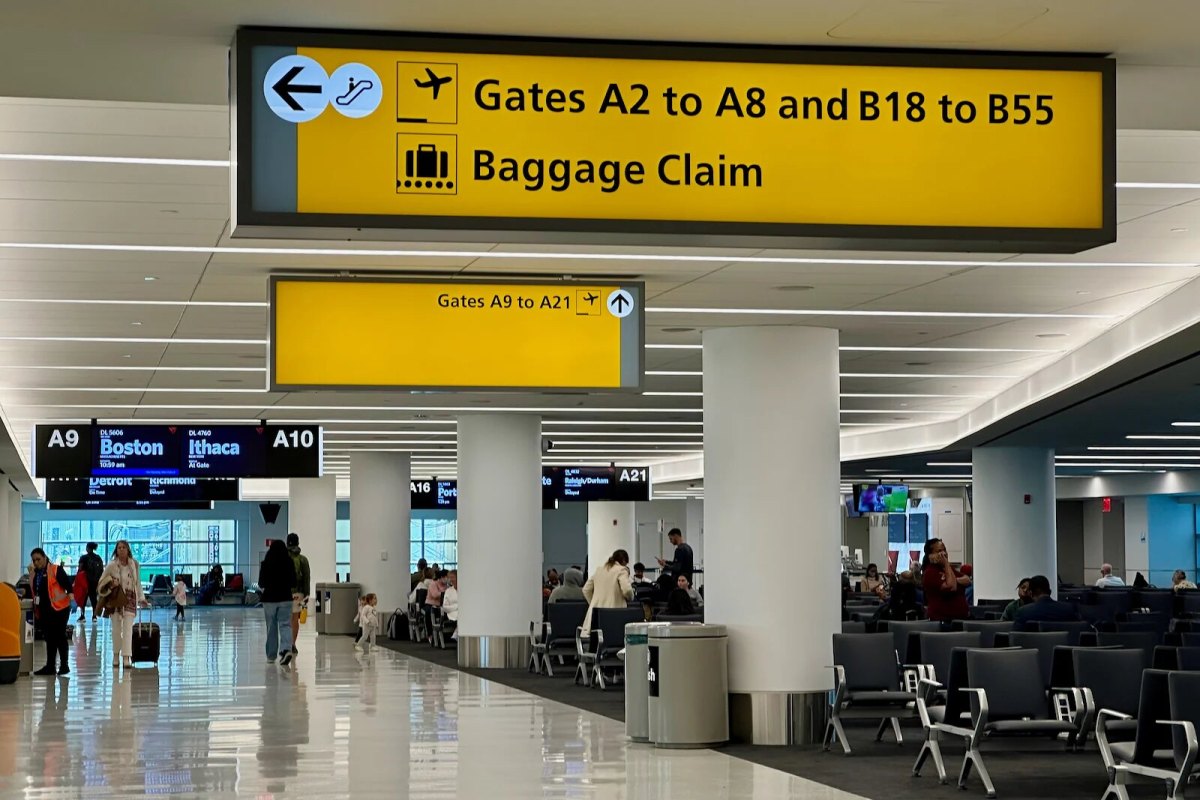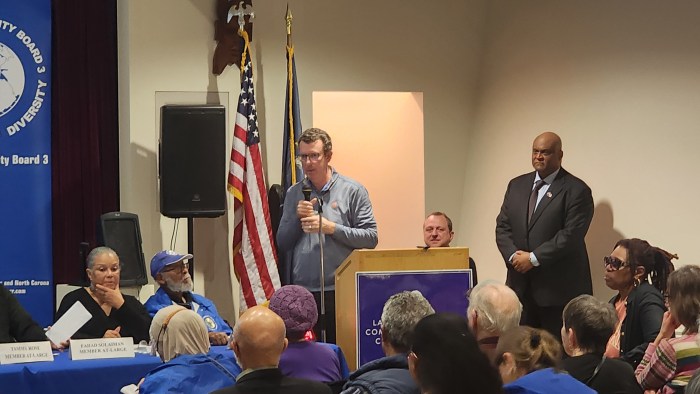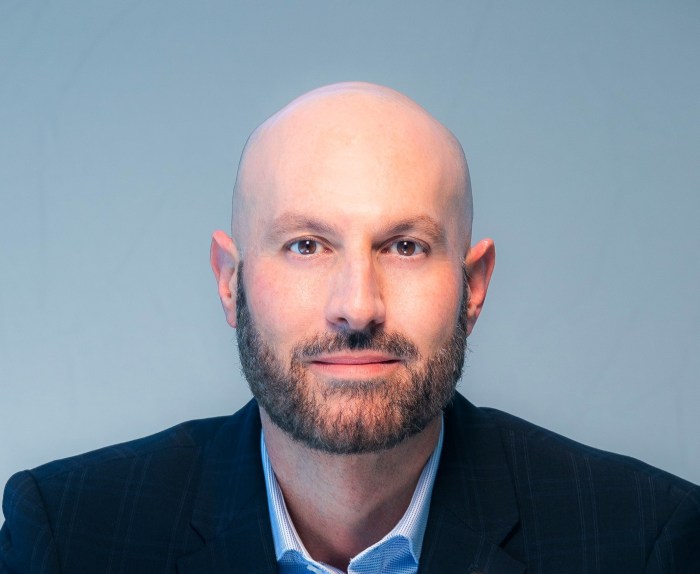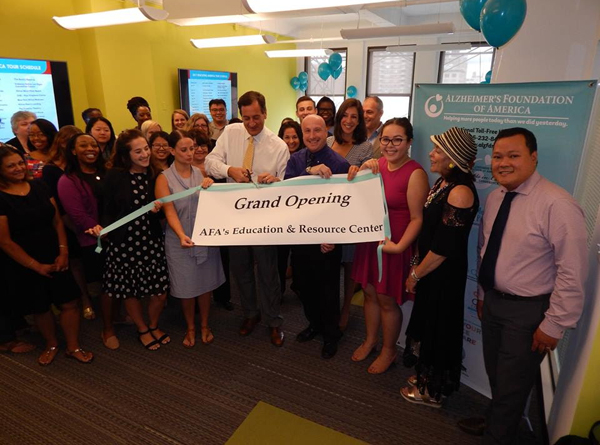
BY NATHAN DICAMILLO | The Alzheimer’s Foundation of America (AFA) is taking one more step toward becoming the “one-stop shop” for information regarding living with dementia and taking care of Alzheimer’s patients with the opening of a new Education and Resource Center at its Chelsea headquarters (322 Eighth Ave., at the corner of W. 26th St.).
“So far since we’ve been doing training programs, we’ve trained 13,000 folks, through DVD training, live training, and webinars,” Molly Fogel, director of educational and social services and licensed clinical social worker at AFA, said. “Now that we have the actual classroom, we can do more things here in our community in New York along with the things we’re doing around the country.”
The AFA is a nonprofit that gives caregivers and families access to information about living with dementia. It serves more than 2,600 member organizations with a nationwide toll-free helpline staffed by licensed social workers, educational conferences and materials, a free quarterly magazine for caregivers, a national memory screening program, and an “AFA Partners in Care” dementia care training for healthcare professionals. The foundation was created with the goal of having a place where no partner or caregiver of an Alzheimer’s patient has to “wonder where to go next.”
With a new space in the same building as their headquarters, the AFA is expanding its already existing programs and creating new courses. “Especially as the disease continues to not have a cure, we’re looking for ways to provide meaningful interventions so that individuals who are living with this illness have quality of life,” Fogel said. “This is just the next course.”
The classroom will be especially ideal for the AFA’s monthly six-hour dementia care training. “We’ve got this beautiful, comfortable classroom,” Fogel said. “[The training] used to be in our conference room so now we’re able to more than double the size of professionals we can train.” During the training, professional and familial caregivers alike receive information about understanding the illness, communication techniques and strategies for patients through professional self-care and end-of-life care.
“We’re able to offer a lot more programming, and we’re getting a chance to be more creative in our programming,” Lauren Snedeker, one of the AFA’s licensed social workers, said.
In a new Coffee Talk series, the AFA will tackle issues around mental health and women in caregiving. Evening workshops, called the Sunset Series, will offer workshops for professional development and education. The foundation is also in the middle of developing art therapy, pet therapy, and dance therapy classes.
Fogel believes that networking is the most critical component of the AFA’s ability to serve trainees. “Because we want folks to realize that, ‘I’m not just a social worker who’s here to get my continuing education. I’m a social worker who is a mom and a sister and I really like to cook and craft.’ ”
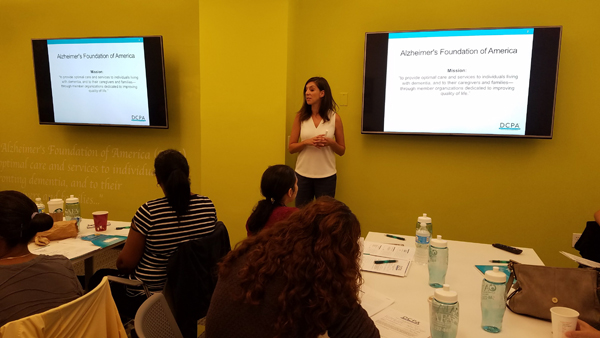
The professionals that utilize the AFA include hospital workers, managers of geriatric care centers, social workers, recent graduates, retirees, and people working in a private healthcare practice. As the professionals in AFA’s space learn new professional techniques from each other, Fogel also wants the caregivers to learn personal skills from each other as well. “We want folks to do that same thing when they’re working with someone with dementia,” Fogel said. “’Cause it’s not just, ‘Oh, this is Sam and he’s living with dementia and he likes to go to dance class,’ but ‘Oh, this is Sam and he likes to go to the dance class, and he likes to engage and you can’t stop him from dancing.’ ” Understanding patients on an intimate level is part of working with Alzheimer’s patients.
Dana Marchetti, who coordinates community relations for a licensed homecare agency based in the financial district called Senior Helpers, has used the AFA as an educational center for both her employees and her clients. Now that the foundation has more space, more workshops can be held at the foundation’s headquarters instead of being hosted somewhere else in the community. “It’s a different way to bring everybody together and have a community education at the center,” Marchetti said. “You get to see everybody and see the social workers that you speak to on the phone.”
Marchetti’s staff takes courses through the AFA and refers family members of patients to the foundation to find counseling and support groups. “The partnership shows that we are very passionate about caring for folks who are dealing with this and helping their families who are going through this,” Marchetti said. “We want to educate ourselves and educate the community and get as much awareness as we can to change what we need to.”
AFA employees often receive the first call from family members who suspect that they or a loved one have Alzheimer’s disease, Snedeker said.
While the AFA has its own support groups, helpline social workers will recommend resources in the communities of those calling. Even though the foundation is based in New York, it keeps in mind the needs of professionals and caregivers who don’t live in areas with as much access to resources, Snedeker noted.
“We’re very strong advocates for person-centered care, and education in your local area is really where we try to begin,” she said. “I love what I do here because I love to have a conversation with people on my helpline to, in a natural way, understand what would be most beneficial for them.”
__________________________________________________
For more information, call 866-232-8484 or visit alzfdn.org.



